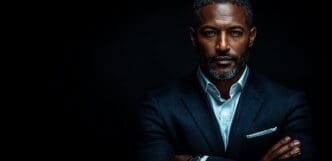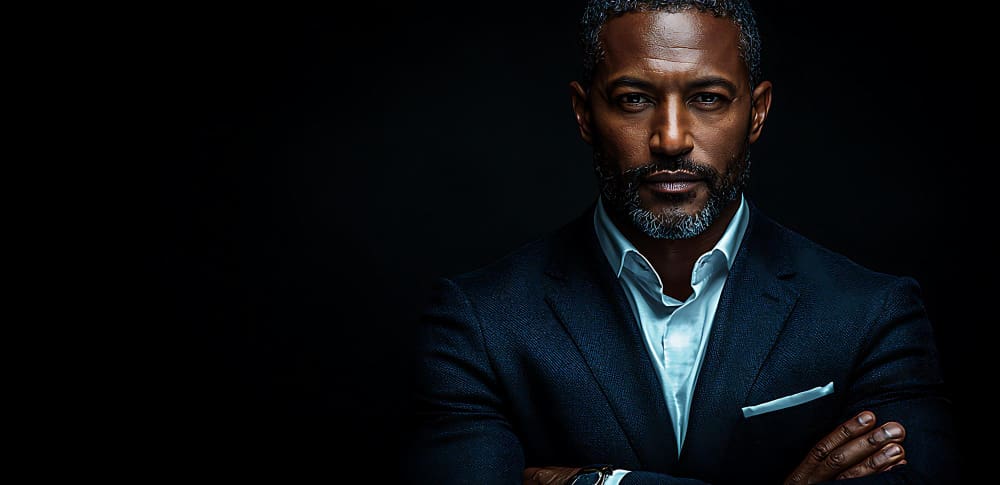In the exclusive global club of billionaires, a small but powerful contingent of Black entrepreneurs, investors, and icons have forged immense fortunes, reshaping industries from technology and telecommunications to media and manufacturing. Led by Nigerian industrialist Aliko Dangote, this elite group includes American private equity titan Robert F. Smith, technology solutions visionary David Steward, and cultural powerhouses like Oprah Winfrey and Michael Jordan. Their combined wealth, running into the tens of billions of dollars, was built through strategic dominance in core economic sectors, savvy investments, and the creation of globally recognized brands, serving as a powerful testament to Black excellence and a source of significant economic and philanthropic impact worldwide.
The Titans of Wealth: A Closer Look
While the list of global billionaires is long, the number of Black individuals on it remains strikingly small, making the stories of those who have reached this pinnacle of financial success all the more compelling. Their journeys are diverse, spanning continents and industries, yet they share common threads of tenacity, strategic vision, and an ability to identify and scale opportunities where others could not. From building Africa’s industrial backbone to mastering the digital economy, these are the figures defining Black wealth today.
Aliko Dangote: Africa’s Industrial Giant
With an estimated net worth frequently placing him as the richest person in Africa, Aliko Dangote is a household name in his native Nigeria and a colossal figure in global commodities. His fortune is rooted in the Dangote Group, the largest industrial conglomerate in West Africa.
His empire, which started as a small trading firm in 1977 with a loan from his uncle, now dominates the production of essential goods. Dangote Cement is the continent’s largest cement producer, but his interests also include sugar, salt, flour, and fertilizer.
More recently, Dangote has made his most audacious move yet: the construction of the Dangote Refinery, one of the world’s largest single-train oil refineries. This massive project aims to end Nigeria’s reliance on imported fuel and transform the country into a net exporter of petroleum products, cementing his legacy as a nation-builder.
Robert F. Smith: The Software Investment Sage
Across the Atlantic, Robert F. Smith stands as the wealthiest Black person in the United States. He is the founder, chairman, and CEO of Vista Equity Partners, a private equity firm with a laser focus on investing in enterprise software, data, and technology-enabled businesses.
A chemical engineer by training with an MBA from Columbia, Smith developed a unique and famously rigorous playbook for acquiring and optimizing software companies. Vista’s strategy involves buying established software firms and applying proprietary best practices to accelerate growth and profitability, a method that has delivered staggering returns for its investors.
Smith captured mainstream attention not just for his wealth but for his extraordinary philanthropy. In 2019, he announced during a commencement address at Morehouse College that he would pay off the entire student loan debt for the graduating class, a gift valued at nearly $34 million that highlighted his commitment to creating pathways for the next generation.
David Steward: The Technology Solutions Architect
David Steward’s story is one of remarkable perseverance. He is the co-founder and chairman of World Wide Technology (WWT), a privately held technology services behemoth with billions in annual revenue. WWT is one of the largest Black-owned companies in America.
Steward grew up in the segregated South and started WWT in 1990 with a handful of employees. The company faced near-collapse in its early years, but Steward’s faith and relentless drive kept it afloat. Today, WWT provides complex technology and supply chain solutions to a vast roster of corporate and government clients.
His success demonstrates a different path within the tech world—not through creating a single software product, but by building a massive, indispensable service provider that helps other giants of industry manage their digital infrastructure.
Abdulsamad Rabiu: The Determined Competitor
Also hailing from Nigeria, Abdulsamad Rabiu is the founder of BUA Group, a major conglomerate and a direct competitor to Aliko Dangote’s empire in key sectors. Rabiu has built his fortune in cement production, sugar refining, and real estate, showcasing the dynamic and competitive landscape of African industry.
After inheriting land from his father, Rabiu began his career by importing commodities like rice and iron. He strategically moved into manufacturing, founding BUA Group in 1988. His major breakthrough came from consolidating his cement holdings into BUA Cement Plc, which is now the second-largest cement producer in Nigeria and is publicly listed on the Nigerian stock exchange.
Rabiu’s aggressive expansion and public listings have rapidly increased his net worth, making him one of the wealthiest individuals on the continent and a powerful force in its economic development.
Mike Adenuga: The Reclusive Telecom and Oil Magnate
Nigeria’s third representative in the top tier of Black billionaires is the famously private Mike Adenuga. His wealth is derived from two of the most lucrative sectors in Africa: telecommunications and oil exploration.
Adenuga built his initial fortune in the oil industry after his company, Conoil Producing, was one of the first Nigerian firms to be granted an oil exploration license in the early 1990s. He struck oil in a significant quantity, creating a massive financial foundation.
He then reinvested those profits into founding Globacom in 2003. “Glo” has since grown into Nigeria’s third-largest mobile network operator with millions of subscribers. His dual-pronged success in both oil and telecom makes him a uniquely powerful figure in the African business world.
Oprah Winfrey: The Media Mogul Who Built a Brand
Oprah Winfrey transcended her role as a talk show host to become North America’s first Black female billionaire and one of the most influential people on the planet. Her fortune was not built on a single invention but on the careful construction of a powerful, trusted personal brand that she monetized through a vast media empire.
The Oprah Winfrey Show was the foundation, but her true genius was in retaining ownership through her production company, Harpo Studios. She parlayed that success into a magazine, a book club that could create instant bestsellers, and eventually, the Oprah Winfrey Network (OWN).
Her story is a masterclass in translating cultural influence into financial equity. “The Oprah Effect”—her ability to move markets and shape public opinion with a single endorsement—remains a powerful economic force.
Michael Jordan: The Athlete as a Financial Empire
For decades, Michael Jordan has been the undisputed greatest basketball player of all time, but his financial acumen has proven just as legendary. He became the first athlete to officially cross the billion-dollar threshold, with the vast majority of his wealth earned off the court.
His landmark deal with Nike in 1984 created the iconic Jordan Brand, which has evolved from a simple sneaker line into a multi-billion-dollar standalone business. Jordan still earns an estimated nine-figure sum annually from his share of Jordan Brand revenues alone.
However, it was his ownership of the NBA’s Charlotte Hornets that catapulted his net worth. After buying a majority stake in 2010, he sold it in 2023 for a reported $3 billion valuation, crystallizing his gains and securing his place as a billionaire investor who created the modern blueprint for athlete wealth.
The Blueprint for Billions: Diverse Paths to the Top
The journeys of the world’s richest Black billionaires reveal that there is no single path to immense wealth. Instead, they have capitalized on distinct opportunities across very different economic landscapes. One major theme is industrial consolidation, exemplified by Dangote and Rabiu, who built their fortunes by meeting fundamental infrastructure and consumer needs in rapidly growing African economies.
A second pathway is through the digital and technology economy. Robert F. Smith and David Steward achieved their success in the United States by mastering the high-margin, highly scalable world of enterprise software and IT services. Their work underscores the power of intellectual property and sophisticated business systems in modern wealth creation.
Finally, the power of the global brand represents a third route, masterfully executed by Oprah Winfrey and Michael Jordan. They transformed their exceptional talents and public personas into durable, money-making enterprises that extend far beyond their original careers, proving that cultural capital can be converted into immense financial capital.
More Than Money: The Lasting Impact
The significance of this elite group extends well beyond their bank accounts. Their success carries profound economic and social weight. In Africa, the industrial empires of Dangote, Rabiu, and Adenuga are engines of job creation and national development, reducing import dependencies and building a more self-sufficient economic future for the continent.
Furthermore, these billionaires are increasingly turning their attention to philanthropy. From Smith’s focus on education and internship access for minority students to Winfrey’s funding of a leadership academy for girls in South Africa and Jordan’s pledges to racial justice initiatives, their giving is targeted at dismantling the systemic barriers they themselves overcame.
Perhaps most importantly, their visibility provides powerful representation. For aspiring Black entrepreneurs and young people around the world, the stories of these billionaires offer tangible proof that reaching the highest levels of global business is possible, rewriting narratives and inspiring a new generation to build their own legacies.
In conclusion, the world’s wealthiest Black billionaires are a diverse and formidable group of individuals who have achieved success through industrial might, technological savvy, and unparalleled brand building. While their numbers remain small, their influence on the global economy, their commitment to philanthropy, and their role as inspirational figures are immense. Their stories are not just about wealth, but about the power of vision and perseverance to reshape industries and create lasting change.








